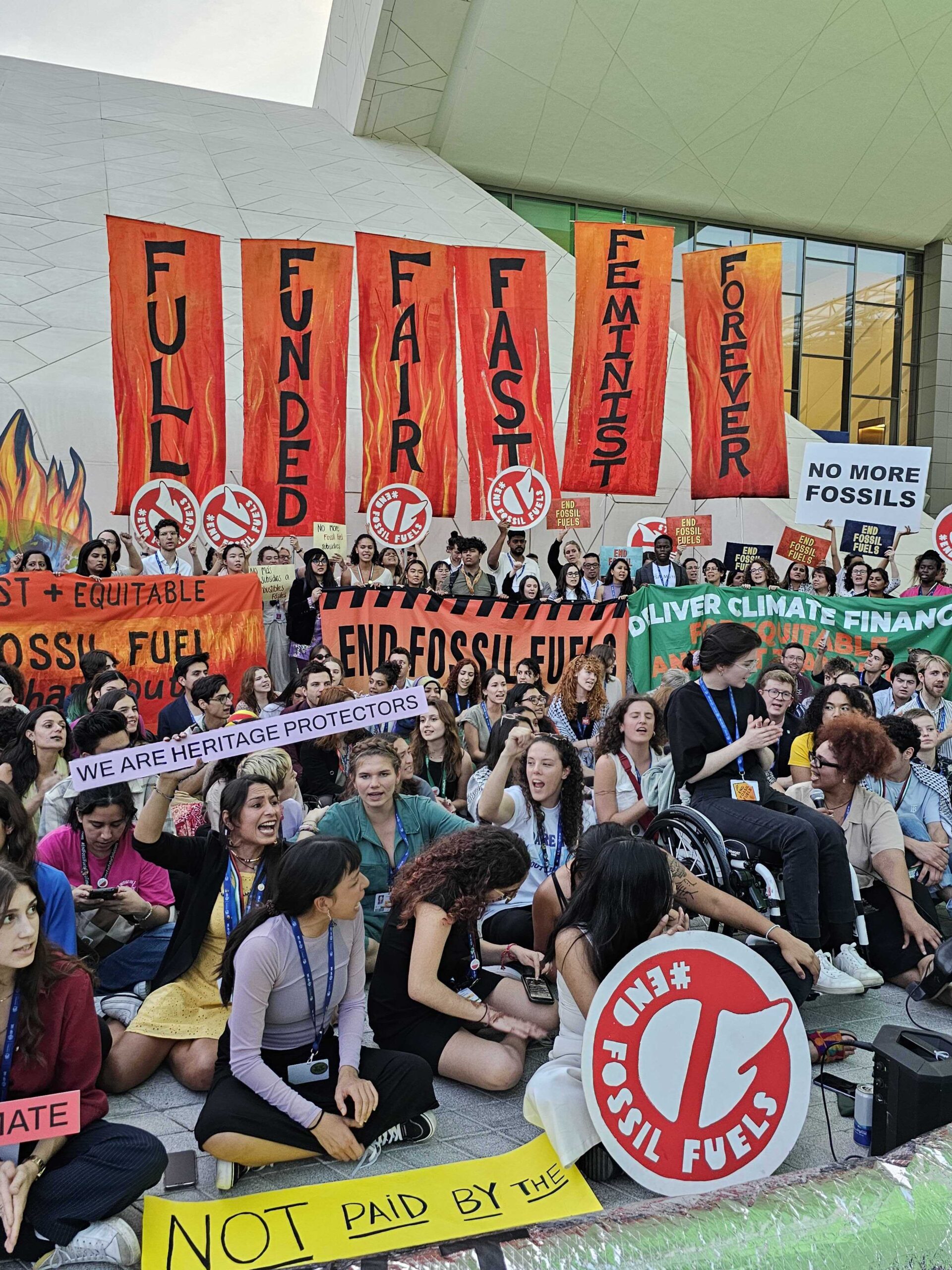FOR IMMEDIATE RELEASE
Contact:
- Nicole Rodel, Oil Change International – nicole@priceofoil.org (GMT+2)
- Valentina Stackl, Oil Change International – valentina@priceofoil.org (ET)
New analysis: International agreement builds momentum for shifting billions away from fossil fuels, but U.S., others lag behind
- Most signatories are complying with the Clean Energy Transition Partnership (CETP) initiative to phase out international public finance for fossil fuels.
- However, significant laggards remain, including the U.S., Germany, and Italy.
- Recent CETP joiners Norway and Australia are under pressure to implement their promise by the end of 2024 at latest.
- U.S. single biggest violator of CETP pledge, approving the most fossil fuel projects of any signatory for a total of almost USD $2.3 billion
February 19, 2024 – New analysis by Oil Change International (OCI) shows that while there is momentum behind the Clean Energy Transition Partnership (CETP) initiative [1], key countries like the United States, Germany, and Italy continue to use taxpayer’s money for international fossil fuel projects. Many of these projects, which are incompatible with limiting global warming to 1.5°C, are only made possible because of the public money that governments provide.
Early analysis suggests that the CETP was already shifting an estimated $5.7 billion per year out of fossil fuels and into clean energy before the end-of-2022 deadline, with the potential of a further $13.7 billion per year if all signatories fulfill their commitments.
The OCI analysis published today reviews updates from September 2023 to February 2024. Findings include:
- A newly-released policy from the German government’s development bank, KfW, will continue to allow support for fossil gas plants and pipelines.
- Italy, the host of this year’s G7, has not improved its “worst-in-class” policy that falls far short of the CETP commitment.
- The analysis also includes Norway and Australia for the first time, who joined the CETP initiative at the COP28 UN climate summit in Dubai last year. Norway and Australia must publish a policy this year to keep the ‘stop funding fossils’ promise they made in Dubai.
- Eight out of the sixteen CETP signatories with significant amounts of international energy finance have policies that end fossil fuel support, and only five have violated their pledge by financing new fossil fuel projects since the deadline passed.
Meanwhile, additional OCI research just released, which tracks individual fossil fuel projects that are in violation of the CETP, shows that a handful of countries including the United States, Germany, and Italy are continuing to violate their commitment by financing fossil fuels. The U.S. has approved the most fossil fuel projects since the CETP end-of-2022 deadline passed, providing a total of almost $2.3 billion for 8 projects. A large amount of this finance came from the U.S. export credit agency, the US Export Import-Bank. Last week, two of the bank’s climate advisors resigned over its continued fossil financing.
Adam McGibbon, Campaign Strategist at Oil Change International, said:
“After countries agreed at the UN COP28 summit to ‘transition away from fossil fuels,’ the CETP initiative could not be more important. If governments are serious about what they said in Dubai, they must stop funding fossil fuels. All eyes are on the new joiners – Australia and Norway – to keep the promise they made, and for President Biden to finally use his power to end the billions in fossil finance flowing from the U.S. Government agencies he controls.”
Moritz Leiner, Energy and Finance Campaigner at Urgewald, said:
“KfW’s new oil and gas policy lacks real ambition. Recently, KfW has thrown a lot of money at the LNG sector and LNG export terminals in particular. Biden’s pause on new LNG export terminals shows that even the US administration regards LNG infrastructure expansion as problematic. KfW needs to follow this example and refrain from financing LNG expansion. While LNG export terminals are excluded from financing at project level, we don’t know whether this is a start or whether financing can then continue via corporate financing.
Overall, the new policy is a missed opportunity because KfW only strives for small reductions in the fossil sector and allows for fossil trade finance until 2050.”
NOTES:
[1] At the 2021 COP26 UN climate summit in Glasgow, 39 countries and institutions – including many EU states, the United States, and Canada – signed the Clean Energy Transition Partnership (sometimes called the Glasgow Statement), committing to end direct international public finance for fossil fuel projects by the end of 2022. The pledge aims to “end new direct public support for the international unabated fossil fuel energy sector by the end of 2022” and instead “prioritize our support fully towards the clean energy transition.” (Full list here)
- Oil Change International’s Public Finance for Energy Database shows that G20 countries and the major multilateral development banks (MDBs) provided at least $55 billion per year in international public finance for oil, gas, and coal projects between 2019 and 2021, almost 2 times more than their support for renewable energy over the same period ($29 billion).
- The IPCC’s AR6 report highlights public finance for fossil fuels as ‘severely misaligned’ with reaching the Paris goals, but that if shifted, it could play a critical role in closing the mitigation finance gap, enabling emission reductions and a just transition. More background on the role international public finance plays in shaping energy systems is available in this Oil Change International briefing.
- A legal opinion by Professor Jorge E Viñuales from the University of Cambridge and Barrister Kate Cook of Matrix Chambers argues that governments and public finance institutions that continue to finance fossil fuel infrastructure are potentially at risk of climate litigation.

